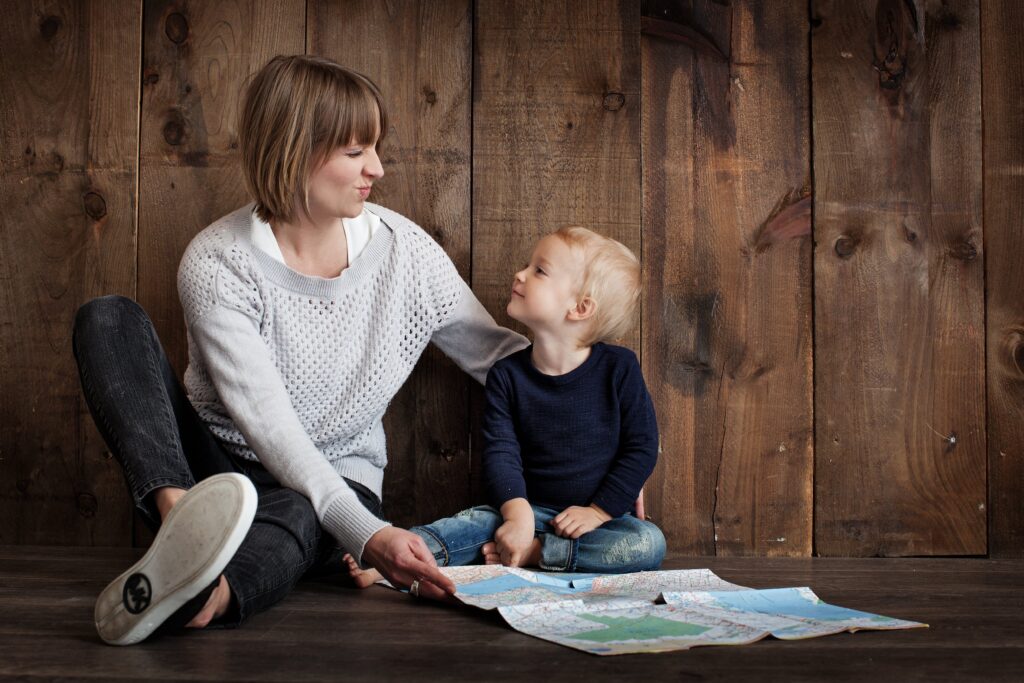Do you want to be a good parent to your children? Of course you do. You want them to grow up happy, healthy, and successful. But parenting is not easy. It can be stressful, confusing, and overwhelming.
How do you know what to do and what to avoid?
How do you balance your own needs with your children’s needs?
How do you deal with the challenges and frustrations that come with raising kids?

Don’t worry, you’re not alone. Many parents struggle with these questions. But the good news is that there are some proven parenting skills that can help you be a better parent. These skills are based on scientific research and expert advice. They are simple, practical, and effective. And they can make a big difference in your relationship with your children.
In this article, we’ll share with you five of these parenting skills. We’ll explain what they are, why they are important, and how to apply them. By the end of this article, you’ll have a clear idea of how to be a good parent in five simple steps. Ready to get started? Let’s go!
Step 1: Show love and affection
The first and most important parenting skill is to show love and affection to your children. This means expressing your unconditional love, support, and acceptance. It also means spending quality time with your children, listening to them, and showing interest in their lives. Showing love and affection is the foundation of a strong parent-child bond. It helps your children feel secure, confident, and valued. It also fosters their emotional and social development.
How to show love and affection?
- Hug and kiss your children every day
- Tell them you love them and you’re proud of them
- Praise their efforts and achievements
- Play with them and have fun together
- Read to them and tell them stories
- Ask them about their day and their feelings
- Be attentive and empathetic
Step 2: Set clear and consistent rules
The second parenting skill is to set clear and consistent rules for your children. This means establishing boundaries, expectations, and consequences for their behavior. Setting rules helps your children learn right from wrong, respect, and responsibility. It also helps you maintain order and harmony in your family. Setting rules is not about being strict or harsh. It’s about being fair and firm.
So, how can you set clear and consistent rules?
- Involve your children in making the rules
- Explain the reasons and benefits of the rules
- Be specific and realistic
- Be consistent and follow through
- Use positive reinforcement and rewards
- Use natural and logical consequences
- Avoid yelling, nagging, and spanking
Step 3: Be a good role model
The third parenting skill is to be a good role model for your children. This means demonstrating positive attitudes, behaviors, and values. Being a good role model helps your children learn by example. It also helps you earn their respect and trust. Being a good role model is not about being perfect or flawless. It’s about being honest and humble.
To be a good role model do the following:

- Be respectful and polite to others
- Be responsible and reliable
- Be optimistic and resilient
- Be curious and open-minded
- Be compassionate and generous
- Be healthy and active
- Admit your mistakes and apologize
Step 4: Control your emotions
The fourth parenting skill is to control your emotions. This means managing your stress, anger, and frustration. Controlling your emotions helps you avoid overreacting, losing your temper, or saying things you regret. It also helps you stay calm, rational, and positive. Controlling your emotions is not about suppressing or denying your feelings. It’s about acknowledging and expressing them in healthy ways.
This is how you control your emotions:
- Recognize your triggers and warning signs
- Take a deep breath and count to ten
- Use positive self-talk and affirmations
- Take a break and do something relaxing
- Talk to someone you trust and vent
- Seek professional help if needed
Step 5: Be flexible and adaptable
The fifth and final parenting skill is to be flexible and adaptable. This means adjusting to changing situations, needs, and challenges. Being flexible and adaptable helps you cope with stress, uncertainty, and conflict. It also helps you embrace diversity, creativity, and innovation. Being flexible and adaptable is not about being indecisive or inconsistent. It’s about being open and responsive.
How to be flexible and adaptable:
- Be willing to compromise and negotiate
- Be open to feedback and criticism
- Be ready to learn and grow
- Be curious and explore new possibilities
- Be supportive and encouraging
- Be patient and optimistic
Surprise!
There you have it. Five simple steps to be a good parent. By following these steps, you’ll be able to improve your parenting skills and enhance your relationship with your children. You’ll also be able to help your children develop their full potential and prepare them for life. Remember, parenting is a journey, not a destination. It’s not about being perfect, but about being better. And you can do it. You are a good parent. And you can be even better. Just take it one step at a time. And enjoy the ride.
